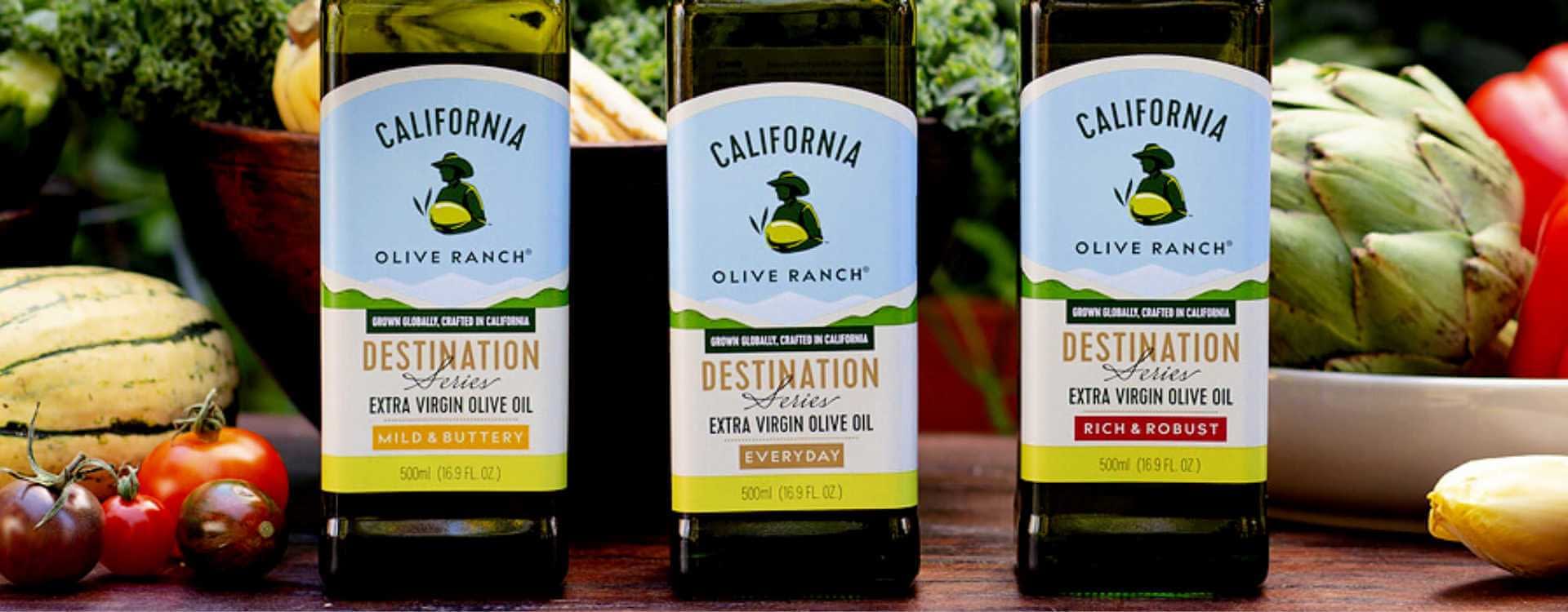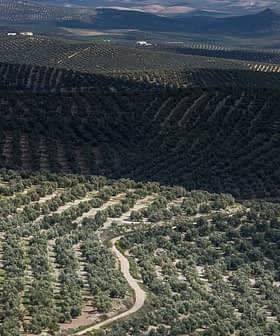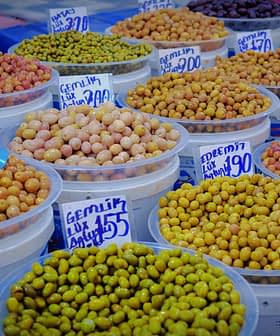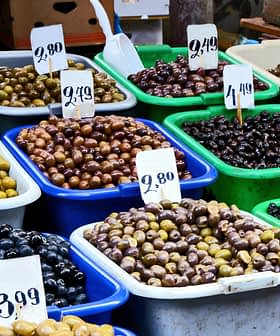'Crafted in California' Makes its Debut

California Olive Ranch, a leading American olive oil producer, has introduced a new “Crafted in California” range of imported oil blends due to a limited supply of California fruit. The company aims to maintain transparency with consumers as they navigate the challenges of a crop disaster impacting all California olive oil producers.
Maybe the New World isn’t so new after all.
Since, oh, the beginning of time, any olive oil that ever-so-briefly may have brushed the blessed shores of Italy were emblazoned with the mythical Made in Italy distinction and set forth unto the world to command much higher prices than oils that admitted where they were really from.
The public’s demand for transparency and authentic products and efforts by ethical producers led to national campaigns that sought to restore the “Made in Italy” brand and reserve its exclusive use for oils that were, well, made in Italy.
In fact, it was the public shaming of those old shenanigans and other unseemly practices that helped give rise to the value of homegrown oils from places like Australia, South Africa, Argentina and California.
Now, in a move straight out of the old Italian playbook, the largest American olive oil producer has announced a new “Crafted in California” range of imported oil blends.
California Olive Ranch (COR) explains on its website:
“It’s no secret that farming is a difficult business and growing olives is not without its challenges. This year, we, along with farmers of all kinds of crops throughout California, were hit with a freeze during our bloom season. This drastically reduced the size of our crop, compromising our ability to make good on our promise of providing Americans with high-quality extra virgin olive oil at a reasonable price.”
In other words, California’s leading olive oil company can’t feed its thriving sales channels with a limited supply of California fruit that’s commanding ever-higher prices.
The reality of the matter, of course, is that American consumers who have been led by campaigns fueled by COR and others to devalue imported oils will not take the time to check the origins of the new “Destinations” range.
See Also:California’s Olive Oil Time WarpThe front label points out that the product is “Grown Globally, Crafted in California” which is reminiscent of the “Designed by Apple in California” that billions of us have seen on the devices in our hands (COR’s CEO, Gregg Kelley, is a silicon-valley veteran). The company predictably omits “imported” — the buzzword of the public-relations bashing COR helped finance.
“In the recent past, we saw country codes in small print on the back label,” Kelley told Olive Oil Times when asked about the new range. “California Olive Ranch wants to change that, and we’re proudly sharing the carefully selected global partners who grow, harvest and mill with the same passion and focus on quality as we do.”
But it would be interesting to ask ten people who purchased a bottle from the new range, “Did you know the oil you just bought is from Argentina, Portugal and Spain?”
More likely, just as the iconic Italian scenes that adorn the bottles of oils from Tunisia, Spain, Morocco and Greece, COR’s familiar rancher logo with the all-caps CALIFORNIA will be all that is needed to close the deal.
Great olive oil comes from California, Spain, Italy, Greece, Portugal, Argentina and dozens of other countries in the world. Blurring the nationalistic lines and focusing instead on quality can be constructive. But COR and its domestic partners came into this fight swinging, through coordinated efforts to debase the opaque practices of their imported rivals, including one practice it now seems to have adopted.
After a particularly bad season, COR is hoping to sell a lot of imported olive oil under its all-caps “California” heading and American consumers, trained by now to reach for local products, likely won’t notice a thing.
“We are currently facing a crop disaster that will impact every California olive oil producer across the board,” Kelley said. “Our mission is to remain honest and transparent with American consumers on the state of the California crop.”
Which is to say, get used to imported oils flying the California flag.









